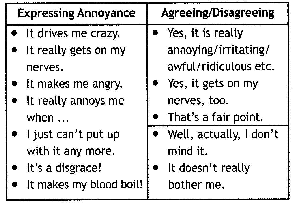- Учителю
- Разработка урока по английскому языку на темуProblems in neighbourhoods
Разработка урока по английскому языку на темуProblems in neighbourhoods
Министерство образования и науки Луганской Народной Республики
ГБОУ Стахановская специализированная школа I-III ступеней №9 им. А Стаханова
</ РАЗРАБОТКА УРОКА
по теме "PROBLEMS IN NEIGHBOURHOODS" для 11 класса
Учитель: Самотугина В.В.




Стаханов 2015-2016 г.
Цель: - формировать лексические навыки, обучать диалогической речи; - совершенствовать навыки аудирования, чтения и говорения; - развивать память, логическое мышление, коммуникативные навыки; - воспитывать чувство ответственности за экологическое состояние своего района и толерантное отношение друг к другу;
Оборудование: CD запись, магнитофон, картинки, карточки.
ХОД УРОКА
I WARMING UP
Teacher: Nice to see you. What's the date today? Who is absent? What was your home task for today? Student: My home task for today's lesson was to tell the class about the problem of the homeless. Teacher: Unfortunately we can often see people sleeping in a shop doorway, in a train station or on a park bench. Tell why do you think these people don't have a home or become the homeless? Describe what are their lives like? Checking H/W
II MAIN BODY
1. PRESENTING THE TOPIC
Teacher: Read the title on the board." Problems in neighbourhoods".What do you think it means?
Student: "Problems in neighbourhoods" means the problems we are facing nowadays in our native town or the district we live in.
Teacher: Today we are going to discuss the problems in our neighbourhoods and the aim of the lesson is to improve your speaking and listening skills.
2.BRAINSTORM Teacher: What problems have your neighbourhoods got? Write your ideas on the board.
3. DISCUSSION Teacher: Read the list of problems.
Rubbish on the streets, lack of parks/ trees, heavy traffic on the roads, street hawkers, stray animals, overcrowded public transport, smells and noise, graffiti, beggars, dog/bird mess, cars/ motobikes on the pavements.
Teacher explains or reminds the meaning of some words/ phrases if it is necessary .(hawkers= street sellers; beggars= people who are asking for money from passers-by; stray animals= animals such as dogs or cats that are lost or have no home)










Teacher: Which of the problems can you see on the picture? Are there similar problems in your town? Discuss in groups what we can do to improve the situation. Give your suggestions.
4. LISTENING
Teacher: Some problems in the neighbourhoods bother the residents and they find them rather annoying. Take the cards and study the ways of expressing annoyance.

Teacher: Listen to three people talking about things they find annoying in the place they live. What each person's problem? Which of the phrases in the table did they use to express their annoyance?
TAPESCRIPT
Bob: It makes my blood boil when people throw rubbish on the streets. In my area, it's so messy! Sometimes, it seems as if there's rubbish everywhere ― on the pavements, in the gutters, even in people's gardens. I mean, why can't people just put their rubbish in a bin - there are plenty around! It's a disgrace!
Helen: It really gets on my nerves that public transport is so crowded in my city. It's impossible to drive into the city now, because there's nowhere to park, so basically everyone goes to work or school by bus. I guess that's good for the environment, but there should be more buses at peak times or they should build an underground train system or something. It's just so horrible standing up all the way to school and sometimes I can't even get onto the bus in the first place. I just can't put up with it anymore.
Peter: It really annoys me that there are so many stray dogs in the streets in my town. Apart from the fact that I feel very sorry for the poor animals that are left out on the street, it's a public health problem! Just the other week, a child was bitten by a stray dog! I mean, surely it's not difficult for the council to have the animals picked up by an animal protection agency? It's a disgrace!
Students' answers: The amount of rubbish everywhere makes Bob's blood boil. It's disgrace. Overcrowded public transport and lack of parking really gets on Helen's nerves. She just can't put up with it anymore. Stay dogs really annoys Peter. It's disgrace.
Teacher: Listen again and say what ways of solving the problems do they suggest?
Students' answers: Bob suggests people to put their rubbish in a bin, he thinks there are plenty of them around. Helen believes there should be more buses at peak times or the council should build an underground train system in the city. Peter feels sorry for the poor animals on the street and thinks that it's not difficult for the council to have the animals picked up by an animal protection agency.
5. WORK IN PAIRS
Teacher: Use the following ideas to discuss, as in the example.
Example: You see someone dropping litter on the pavement. A: It really gets on my nerves when people drop litter on the pavement. B: Yes, it gets on my nerves, too. Why can't they use the bins?
The ideas: 1. Your neighbour's dog has fouled in front of your house. 2. You walk past an alley that stinks of rubbish. 3. You have been asked to by a pirate CD/DVD while you are at a café. 4. You are on a busy bus squashed up against other people.
Students' answers: 1. A: It drives me crazy when people let their dogs foul on the pavement outside my house.
B: Yes, it drives me crazy too. Why can't they scoop it up?
2. A: It's a disgrace the stink that comes from all that rubbish.
B: Yes, it's awful. Why can't they clean the streets more regularly?
3. A: It makes my blood boil when people ask me to buy pirate CDs and DVDs.
B: It doesn't really bother me.
4. A: It really annoys me when they allow too many people to board the bus.
B: Yes, it gets on my nerves too.
6. READING
Teacher: Read the first two exchanges in the dialogue. Where does the conversation take place? What do you think Bob wants?

Students' answers: The conversation takes place in the neighbourhood. Bob wants his neighbor to do something to stop his rubbish smelling so much.
Teacher: Read the dialogue again and answer the questions. 1. What is annoying Bob? 2. What is Tom's reaction to Bob's complain? 3. What does Bob suggest as a solution? 4. What is Tom's first reaction to Bob's suggestion? 5. How does Bob persuade Tom to do what he wants?
7. SPEAKING
Teacher: You are going to work in pairs. You can use the phrases from the cards and the previous dialogue as a model to make and act out your own dialogue by the following situation: Your neighbour's dog is keeping you awake at night. Teacher may ask some questions to help the students to make the dialogue. What is annoying you? (the dog is keeping me awake at night)What can be your neighbour's reaction to your complain? (the dog sometimes barks. ) What can you suggest as a solution? (let the dog sleep inside the house)What can be your neighbour's first reaction to your suggestion? (the dog can make a mess , he would have to spend time for cleaning) How can you persuade your neighbour to do what you want?(my wife and son are having difficulty sleeping and they are tired during the day)
Suggested student's answer :
A: Can I have a word with you for a minute, please?
B: Sure. What is it?
A: Well, it's about your dog actually.
B: What's the problem?
A: Well, I'm sorry to say this, but it is keeping me awake at night and I just can't put up with it any more.
B: But he's a dog. Of course he sometimes barks!
A: You could let him sleep inside the house. That's what I'd do.
B: But he would make a mess and I would have to spend all my time cleaning!
A: Yes. I appreciate that, but the barking is so annoying. It really gets on my nerves.
B: I see. Sorry about that.
A: Also, my young son is having difficulty sleeping and has been very tired during the day.
B: In that case, maybe I should take the dog in at night.
A: Thanks.
III SUMMING-UP
Teacher: Thank you for the lesson. You were very active and creative. Your marks are ..… (comment the marks).HOMEWORK: Write ten words/expressions you have learnt in this lesson and make sentences using them.